Advanced Guide to Point of Sale (POS) Systems
Curate. Compare. Save!
Let Possibly's experts save you time and money by matching you with the perfect software providers.
Any individual looking to make a splash in the retail or hospitality world needs a modern point of sale (POS) system. By adopting the latest POS technology, you can harness the power of your sales data to optimise business operations.
Many POS systems can function across your physical and eCommerce store so that you can manage your entire business on one platform. Whilst payment processing is the core function of a POS system, the best systems can cover so much more.
To oversee the various components of your business, opt for a POS system with advanced features like inventory, customer and employee management tools. We’ve put together this advanced guide to POS systems to break down how to find the perfect system for your business.
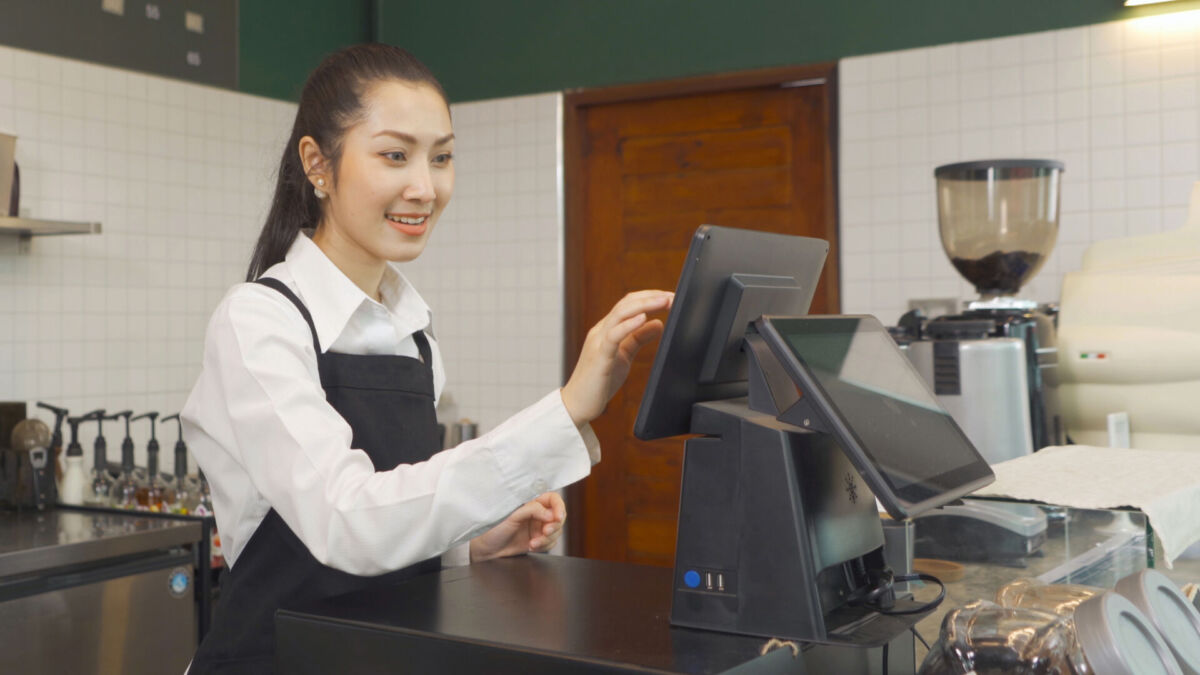
Introduction to POS Systems
POS stands for point of sale and refers to the system that facilitates ringing up sales. This includes all the hardware and software used to accept payments and track sales.
Gone are the days when a POS system only included the site where customers physically bought goods and services, e.g. the cash register. Thanks to immense technological advancements, POS systems nowadays encompass much more.
Any hardware connected to your POS becomes part of that complex system. For example, tablets are used by waiting staff to take orders. Not only this, but the software installed on that hardware is also part of the POS system, such as payment processing software.
Benefits of a POS system
Today’s hassle-free POS solutions automate much of the workload, from processing sales to managing inventory. Automation frees up vital employee time, increasing efficiency and maximising profits.
Using the top POS hardware and software in unison means you can sell your products and services securely and seamlessly. Transactional data is then stored in your POS system, which can be used to formulate reports and gain actionable insights.
However, a POS system’s capabilities are not limited to processing sales. You can also rely on POS technology to cover every aspect of business management. For example, inventory management, accounting, reporting, customer relationship management, and more.
We're here to help!
Different Types of POS Systems
These are the main types of POS systems.
1. Traditional POS System
The traditional POS system is also known as an on-premise or legacy POS system. All the hardware and software are installed within, and limited to, the walls of your physical store.
This POS system runs on closed networks and relies on local servers, meaning you can only access sales data when you’re physically in store. Maintenance and updates are handled manually, and costs can be high.
However, it remains a popular choice among business owners. A key advantage is that traditional POS systems tend to be large and robust, meaning theft or damage is far less likely.

2. Cloud-based POS System
Cloud-based POS systems store all your data online, meaning you can manage aspects of your business from anywhere. All you need to do is log into an internet-connected device, and you can use your integrated software tools on the go.
Not only does a cloud-based POS system securely store your data, but it also automatically updates software and functions even when you’re offline. If you lose Wi-Fi, your data is protected, and any sales processed are automatically updated when you regain connection.
There are minimal upfront costs involved with cloud-based POS systems, and payment plans are often affordable. The preferred choice of most business owners is a cloud-based system because of its mobility and accessibility.
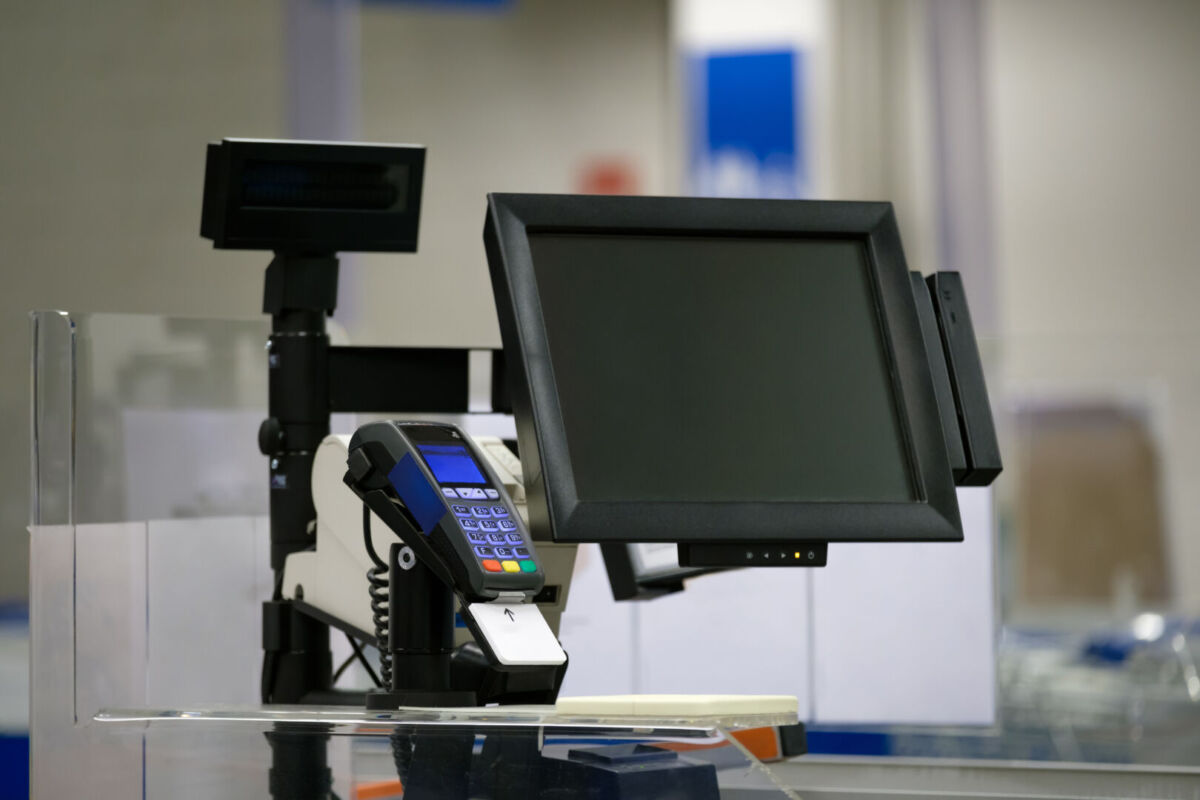
3. Mobile POS Systems
Any mobile device or tablet can function as a point of sale and connect to the cloud. Most POS software works seamlessly on mobile devices, meaning an mPOS is a flexible and efficient solution.
Mobile POS systems aren’t tethered to your counter, meaning employees are free to circulate your store while serving customers. There are no hidden installation costs, and mobile POS systems are user-friendly.
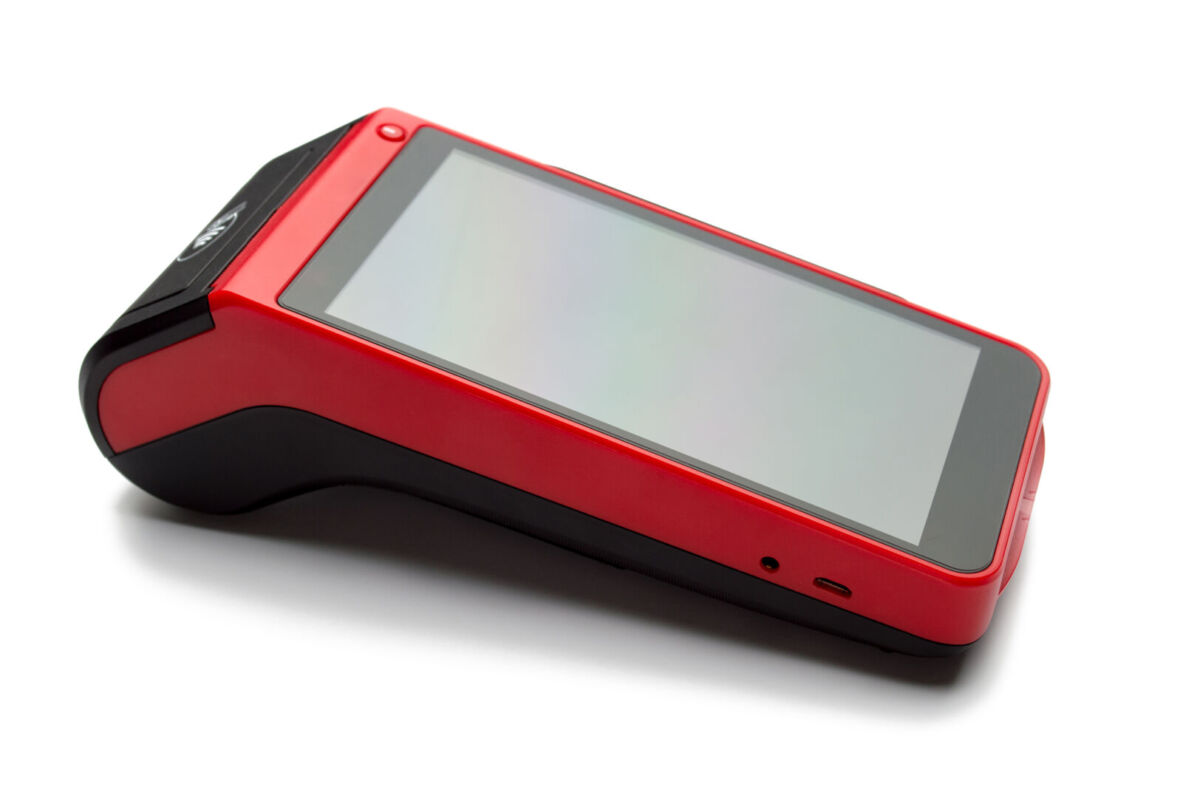
4. Self-Service Kiosks
Self-service kiosks allow customers to self-checkout. They’re prevalent because they reduce waiting times and labour costs. Many large retail stores and fast service restaurants opt for self-service kiosks to streamline daily operations.
Many customers prefer self-service kiosks and feel they provide a more pleasant shopping or dining experience. They also benefit employees, who can spend more time on other important tasks.
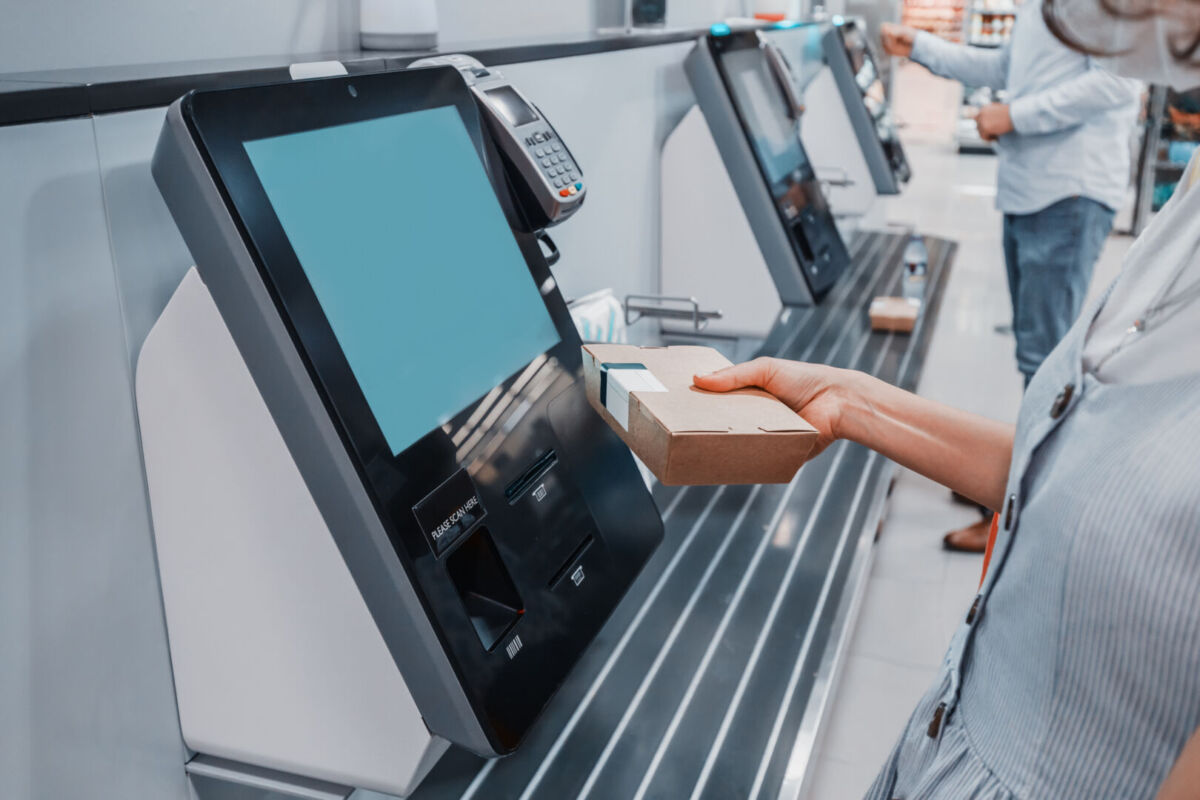
5. All-in-one POS systems
All-in-one POS systems consolidate the disparate POS elements into one. Some providers offer a package containing the required hardware and pre-integrated software. An all-in-one system is an ideal choice to synchronise all your POS applications effortlessly.
Having everything you need on one operating system streamlines business management significantly. There’s no risk of software incompatibility or miscommunication. Instead, you simply set up your POS hardware, and you’re ready to go.
The only slight disadvantage is that if the system goes down, this affects your business more. However, you only have to refer to one provider for customer support, and these systems are pretty advanced and reliable.
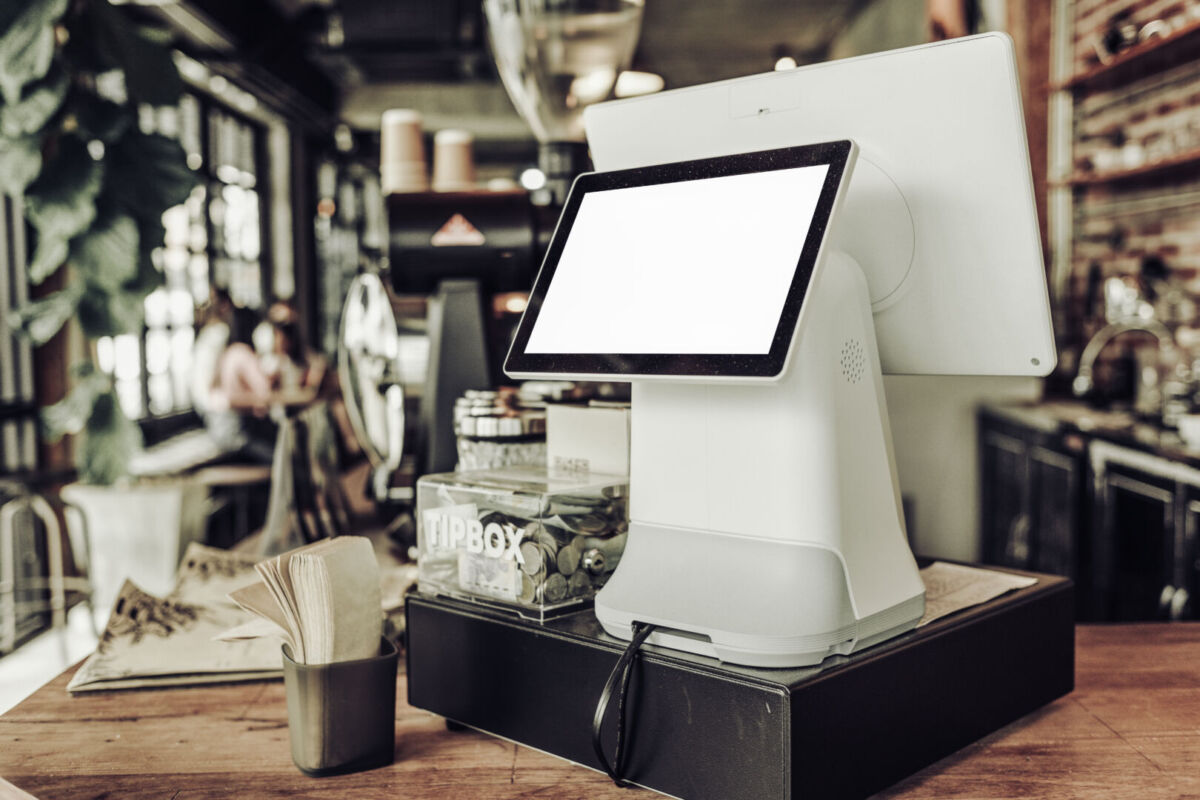

Who Should use a POS System?
POS systems can benefit F&B, retail and professional service businesses of all sizes.
Industry
Industry-specific POS solutions can be a great option because they offer services relevant to your business type.
POS systems tailored toward restaurants, bars, and cafes prioritise table and menu management features. In contrast, systems built for the retail world may come with barcode scanners for checkout. Some systems specialise in managing client appointments for those running a professional service, like a salon.
For fully digitized businesses, eCommerce POS systems contain vital design tools to help you build a beautiful website. Leading POS solutions can bridge your online and physical stores to consolidate inventory and provide an omnichannel experience.

Size
If you own a large business or enterprise, there are POS systems built to operate in multiple locations. Look for a system that can synchronise data across multiple sites, manage a large workforce, and serve a high volume of customers.
Small business owners shouldn’t necessarily invest in a POS system bursting with advanced features. Going for a smaller, simple design could be more cost-effective and instead dedicate your profits to other business areas.
Components of a POS System
A POS typically comprises an internet-enabled device to act as a monitor and various accessories to help with the basic process of exchanging money for goods. The hardware you choose to adopt will depend on the type of business you run and how you wish to manage transactions.
Key Hardware Components
The primary components of most POS systems are:

Monitor
You’ll need a basic monitor to process sales, generally a desktop or mobile device. It’s often this screen that customers use to access POS applications. If you’re seeking multiple POS terminals, keep in mind the affordability of your monitor.
Printer
Receipt printers provide customers with a physical copy of their purchase. These are often connected to Wi-Fi and quickly connect to POS data. However, many modern businesses prefer to go paperless and opt for email receipts.
Kitchen printers are used to print out order tickets in restaurants to simplify food preparation. They can be beneficial, but many business owners opt for a digital approach with a kitchen screen display.
Card Readers
Having a credit card reader is more crucial than ever in today’s cashless world. Card readers allow you to accept payments via credit and debit cards or mobile wallets. Modern solutions are wireless, compact, and can be used on or off-premises.
Cash Drawers
For peace of mind, it’s vital to have a cash drawer with enhanced security features. Most businesses choose to have a cash register only accessible to employees and controlled via the monitor.
A cash register is not necessarily an essential piece of hardware since many businesses only accept card payments. Ditching the traditional cash drawer could save a great deal of time but potentially risk isolating specific customers.
Advanced Hardware Components
More advanced features include:
- Barcode scanners.
- Additional tablets/mobile devices.
- Digital menus.
- Bluetooth scales.
- Kitchen screen display.

Key Software Features of a POS System
You may choose an all-in-one cloud-based mPOS or a more traditional cash register tethered to your counter. Regardless, consider the software tools below when exploring POS system options. These features result in a highly functioning, effective POS system when combined.
Payment Processing
The primary function of any POS system is to process payments. The top point of sale systems allows you to accept cash, credit cards, debit cards, contactless, and mobile payments. Integrated payment processing It’s also essential to have a system that maintains compliance and has low processing fees.
Inventory management
Inventory management features like automated tracking, intelligent ordering and stock forecasting are key. The software can communicate with your POS sales data to ensure accurate auditing and remove the need for manual stock takes.
Employee Management
Integrated employee management software allows your workforce to clock in/out, request time off, and communicate with coworkers from any POS-connected device. Similarly, management can monitor employee performance and track KPIs off-site from their mobile devices.
Accounting Software
Connecting accounting software to your POS system makes keeping track of finances more manageable. This can help with budgeting, payroll, bank reconciliations, and transferring funds.
Customer Relationship Management
CRM software uses POS data to build customer profiles for more targeted marketing campaigns. Use customers’ purchase history to influence marketing communications and reward loyal customers with incentives.
Productivity Tip
Which POS System is Best for your Business?
With so many impressive solutions, it’s challenging to narrow your search for the best POS system. Below, we have compiled the key factors to consider when weighing your options.
Cost.
POS system costs vary depending on the hardware and software you choose. The most affordable option is to connect an existing mobile device with a card reader and rely on free software to manage your business. However, it’s worth investing in a more advanced POS system if you already own a large company or want to grow to the next level.
Usability.
Your POS system will be used by yourself, your employees, and your customers. With this in mind, you need to find a solution that’s easy to navigate. If systems require training to master, this can slow down daily operations and ultimately lose you profit.
Scalability.
If you own multiple store locations or wish to expand in the future, it’s crucial to find a system that can handle this. Many POS systems function at a high level, even over hundreds of locations. A system that can sync up and store data across your entire business is beneficial to the management process.
Compatibility.
Whilst some systems come with business management features already installed, others require external integrations. It’s worth researching POS systems to ensure that they’re compatible with the POS software you need.
How to Choose the Right POS System for your Business
Once you’ve got your head around the intricacies of POS systems, there are further steps you can take to gain a deeper understanding of the market. It’s worth reading into customer reviews about POS systems to get a realistic sense of how they perform for restaurant and retail businesses.
POS provider websites often contain informational videos to summarize their products, which can be helpful to watch. You can also try a free trial of most products to get a sense of a POS system and assess its practicality.
Summary
Regardless of your business type and size, POS systems are an indispensable tool. However, it can feel overwhelming to commit because there are so many options.
Before deciding, there are various things to consider. Think carefully about what hardware and software would benefit your business. It might tempt you to go for all the bells and whistles, but sometimes more compact and simple solutions are the way to go.
It’s also worth writing down your specific budget, usability, scalability, and compatibility parameters. By following the advice outlined in this advanced guide to POS systems, you will find the perfect solution for your business.
Find the best POS system for me!











